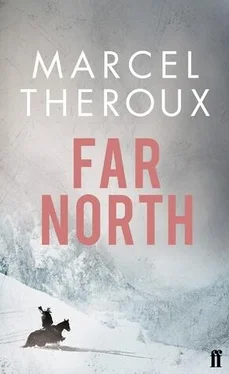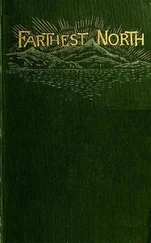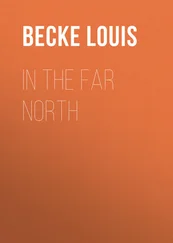Shamsudin and Zulfugar pressed on into the city, looking for one of the places marked on their map.
When they found it, it turned out to be a playground. There were shoes and cans scattered around the place, a rusty carousel, a steel rocking horse and swings that had rotted.
Night was falling and Shamsudin was ready to turn back, but Zulfugar had it fixed in his head that the map was wrong. As a soldier he’d served sometimes with maps that had been tweaked to fool the unwary by hiding the location of important things, and he figured the true destination was about two hundred yards further off.
It took some scrambling to get over its outer wall and Zulfugar cut e being and open. He tied it with a rag and boosted Shamsudin in through a window.
The drop on the inside was much further than he expected. He stiffened up as he fell and hit his head on landing. He lay unconscious for a while, but he couldn’t say for how long. When he came to, he looked up and saw the window was too high for him to climb back out again. He felt something drip warm on his hand. He had broken his nose in the fall.
He said a panic seized him at the thought of dying alone in there. He shouted himself hoarse calling out to Zulfugar. The foundations were deep and it was pitch black inside. Then, after a while, his eyes began to adjust to the darkness, and the pain of the fall abated.
He stood up and began feeling his way around the walls of the building. It seemed to him that the floor sloped upwards slightly in one direction, so he headed that way, hoping it would lead him above ground.
The bunker was vast. Shamsudin said that at times he thought he was going out of his mind, and at other times he feared he had died, and he was fumbling along in the corridors of the afterlife.
After what seemed like hours of wandering, he felt broken glass under his feet and, looking up at the window he’d fallen through, he realized he’d come full circle.
That’s when he gave up hope of escaping the labyrinth. He cursed god, and threw himself against the wall, hoping to dash out his brains, but the darkness gave way in front of him. He found he’d stumbled through a kind of doorway into an inner chamber, and in this place he noticed a paleblue light coming from under a metal door.
To his astonishment, the door swung open when he pushed it. It led into a huge storeroom, lined with metal shelves twenty feet high.
Stranger still, the blue light was coming not from a window, but from a shelf of blue flasks that were crackling and glowing.
Shamsudin was a man of science, but he said he had never seen anything that was like them, or the power that was in them. He reached for the drawings he had made at the base, but found he had lost them and his map in the fall.
As he told me this, I heard the branches under him rustle. He was fumbling inside his jacket. I put one hand on my gunstock. I must have drawn breath as I did it, because he looked up at me. He was yards away from me, but I could see his face clearly, the deep shadows in his eye sockets, and the glint of gold in his teeth, as though lit by candlelight.
What he had taken from his coat was one of the flasks he had described. I had imagined it like a light bulb, but the light it contained was neither solid nor steady. It moved and shimmered. It looked for all the world as though someone had caught a part of the Lights in a mason jar.
He stood it in the snow between us.
The closer you got to it, the stranger it was. It had the power fire has of drawing your eye into it so you’d notice the tiniest things. The light had texture and depth, like flame does, like the towers of Polyn 66 seen from far off, but it had a quality of water, too: moving, folding, closing, sending off little shoots of blue flame, rolling back on itself as though it was gathering its strength again. And all the time, I could hear a faint hiss coming off the flask, like a live thing breathing.
Shamsudin had taken two of them from the rack and used their light to guide himself through the cellar.
The light was too faint and scattered for him to see far with, but he was able to figure out that the space he was in was circular, and after about another hour of fumbling he found a ladder bolted on one of the internal walls. It took him up to a trapdoor in the roof.
It was a big, heavy steel trap with bolts across the inside, but even when he’d undone them, he couldn’t lift it. Leaf mould had settled in the hinges and was holding it closed. There was a crack of daylight visible where the door sat in the hatch, and he could smell fresh air. In his eagerness to be free, he battered at the door with his fists and it opened a little, and one of the flasks dropped.
Shamsudin said he’d flinched and covered his eyes expecting a crash of glass, and sparks, or flame, or worse, but the flask fell ten, twenty feet and bounced as though it was made of iron. He left it there laying in its own pool of blue light, like a lantern at the bottom of a well.
He had been underground so long that he thought Zulfugar would have given him up for dead, but not only was he waiting where he’d left him, nursing the wound on his hand, he’d saved Shamsudin’s share of their rations which he’d had for safekeeping.
Shamsudin ate his food and told him where he’d been while Zulfugar took off his ragged mittens to touch and marvel at the flask.
By this time, it was getting close to the hour of the rendezvous. Zulfugar said they would have to leave, or risk getting there late. He stood up first and offered Shamsudin his hand to hoist him to his feet.
Shamsudin looked at him in surprise and asked him for his other hand. Zulfugar showed him its back and front. The wound had knitted up without a mark.
Zulfugar grabbed him fiercely by the coat and told him, ‘God is great.’
I asked Shamsudin if he was sure it was the flask that had done it. He swore five ways that it was and said that it healed some smaller scrapes of his own.
Then Zulfugar asked Shamsudin if he thought he would be able to find his way back to the room where they were stored.
Shamsudin said he thought that with a rope and a lantern the return could be made pretty smoothly, though the truth was that he dreaded going back there.
A change had come over Zulfugar. He puzzled over his drawings and found a number that matched one on the flask. His joy had given way to a kind of nervousness. It’s the same when a green card player gets dealt a winning hand and he finds himself all sweaty and anxious at the thought of scooping the pot. Zulfugar was hatching a plan to barter the flask for their freedom.
He said that if they went back to the bridge together, the guards wouldn’t hesitate to strong-arm the flask off whoever had it. Instead, he told Shamsudin that one of them should return while the other remained in the Zone guarding it.
His proposal was that Shamsudin should go back empty-handed and tell Tolya exactly what he’d stumbled upon. In return for leading the guards to it, he was to ask for a week of rations and a horse.
Time was ticking by. Shamsudin had misgivings about the plan. He had a timid spirit and his natural inclination was just to hand over the flask and trust to the good faith of the guards.
Zulfugar would have none of that. He was pacing in the snow, ramping up his demands like the fisherman’s wife in the fairy tale: two weeks of rations, a month of rations, a horse each, a gun.
Right at the last minute, Zulfugar decided Shamsudin should be the one to stay behind. Maybe he didn’t trust his friend. More likely, he felt he was the shrewder bargainer.
The trouble with Zulfugar’s plan was that it credited the guards with too much intelligence. I don’t think anyone but Apofagato knew exactly what we had been sent to the Zone to find. You could copy pictures until your hand got cramp, and write down all the numbers you liked, but until you saw that flask, with the light pulsing in it, you would never believe such a thing existed.
Читать дальше












